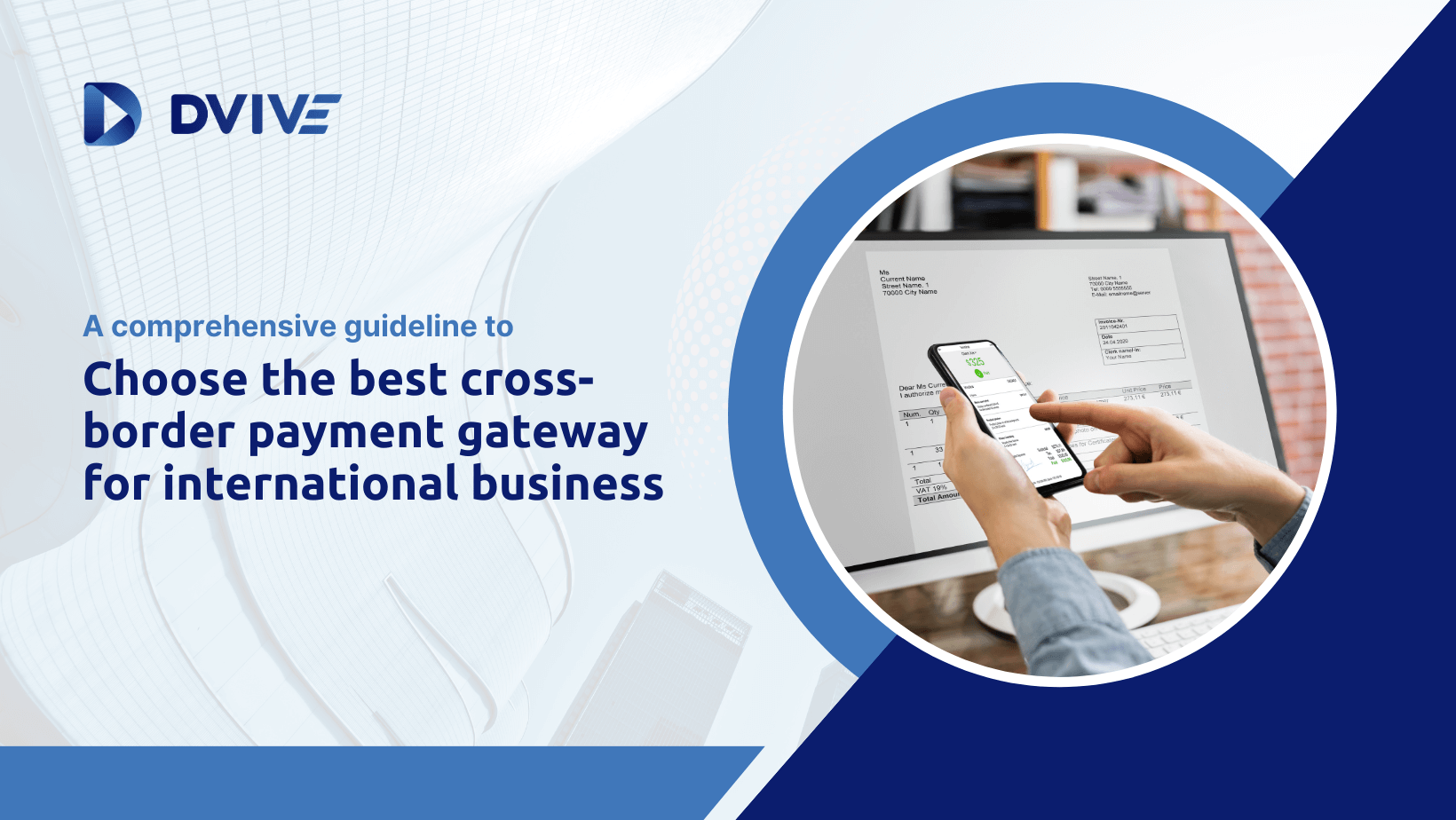How to Choose the Best Cross-Border Payment Gateway for Your Business?

A payment gateway is an application that accept payments online from a business’ website. It enables transacting payment from customers to process the payment into your business bank account.
Running a successful online business requires more than just great products and an attractive website.
One crucial aspect that often decides the fate of your transactions is the choice of a cross-border payment gateway. In an interconnected world, where borders are no longer barriers, selecting the right payment gateway can significantly impact your business’s success.
It’s important to choose a service provider that suits your online business, and there are several factors to consider before choosing a payment gateway solution.
Let’s dive into the intricacies of choosing the best cross-border payment gateway that aligns with your e-commerce or online business needs.
Common cross-border payment use cases
- E-commerce
Most customers intend to purchase products in their local currency, even when ordering international websites. Yet, most e-commerce platforms offer prices of products and services in their own currency.
- Remittance
Cross-border money-remittance (P2P) can be a blessing to immigrants. It allows them to easily, and securely send money back home as and when needed.
- International Trade
Cross-border payment is becoming increasingly popular for internationally trading businesses. Buyers and sellers can make effortless and seamless transactions with safety and security.
- Travel
Cross-border payments can significantly simplify payment options for travelers, whether they are paying for airline tickets, hotel bookings or purchasing products whilst abroad.
- Business Expenses Processing
Some international businesses may even use cross-border payment solutions to process payments such as employee wages, insurance claims and customer refund requests.
How to Choose the Best Cross-border Payment Gateway for Your Business?
#1. Analyze your business needs and requirements
Before deciding on any payment gateway, it is crucial to assess your business’s unique requirements. It will be best if you go through an assessment process to identify the key features you will require from your payment gateway/
#2. Transaction fees and costs
Like any service provider, a payment gateway charges a fee for facilitating processing of your payments safely and securely.
Every service provider has individual transaction fees and terms of services. Fees are usually charged per transaction and calculated as a percentage of the value of each transaction. However, some service providers may operate on a ‘monthly’ basis, taking into account transactions over each one-month period.
The transaction fees and charges ultimately payable will depend on your individual business, and so it is crucial to make this decision based on your business’ unique operational considerations. Dvive offers competitive pricing options to save you money and ensure your business’ smooth operation.
#3. Merchant acquiring services
It is important to have a merchant account when accepting debit and credit card payments. While Payment Service Providers (PSP) provide essential features for small business, a full-fledged merchant account will be necessary for larger e-commerce businesses to process transactions smoothly.
#4. Payment methods and currency support
As aforementioned, most customers intend to purchase products in their local currency, even when ordering international websites. Therefore, it is crucial for service providers to support multi-currency accounts with diversified payment methods in order to operate a global business online. This process may require additional fees and charges.
#5. Country and region
Many service providers only serve retailers and merchants in their specific country or region. However, the ability to cater to customers outside your region can significantly fuel the growth of your business. In order to facilitate such international expansion, your e-commerce website must be specifically set up to handle international payments.
As a result, you must ensure that your payment gateway of choice accepts merchants operating from the country your business is registered or headquartered in.
#6. Integration process
Selecting a payment gateway with a quick and simple integration process is ideal. Additionally, it’s critical to ensure that the infrastructure doesn’t contribute to a subpar user experience (UX) or sluggish payment processing. This helps ensure your consumers can utilize their preferred payment method in a simple and convenient way.
Payment gateways typically offer documentation or guidelines to facilitate the integration process. If you are not a developer and do not have any knowledge of coding, it is wise to hire someone who has experience to integrate your payment gateway with your e-commerce or business website.
#7. UX design for mobile device
Mobile online purchases are rapidly overtaking desktop purchases. Thus, you must ensure you’re your selected payment gateway has a user-interface and payment page design that is optimized for mobile devices.
#8. Implementation of recurring payments and subscriptions
If you want to offer subscriptions or recurring payments, you must verify whether the payment gateway accepts automatic recurring payments. If not, you’ll need to manually charge your clients on a regular basis.
Choosing a payment gateway which allows automatic recurring payments can therefore save you crucial time and expenses, which may be better devoted to growing your business. You can configure details like subscription names, costs, and billing cycles using subscription modules or API. Customers can also access their accounts to manage subscriptions.
#9. Complaint with security requirements
Security compliance is essential regardless of the size of your online business. The acronyms PSD2, Strong Customer Authentication (SCA), 3D Secure 2.0, and PCI compliance may be familiar to you as payment security concepts. However, configuring your e-commerce store’s security compliance on top of the myriad number of other concerns you have as a business owner need not be a necessary hassle.
Instead, you can ensure you select a payment gateway which manages such security compliance on your behalf. This minimizes the time and effort required on your part, whilst maximizing customer confidence in your service and fueling your continued growth.
#10. Customer support
Seamless and rapid customer support is another crucial factor to consider when selecting payment gateway solutions. Given the significant impact financial/technical disruption can have on your business, you must ensure the payment gateway you select provides effective customer support in case of emergencies.
You can accurately ascertain the customer support capabilities of a payment gateway provider by reaching out to them directly, with questions regarding their service, and testing the speed and quality of their responses.
In conclusion, in the vast sea of cross-border payment gateways, finding the perfect fit for your e-commerce business might seem daunting. However, guided by the right questions and armed with the right information, you can navigate through the options and make decisions that propel your business to new heights.
Author: Wazed Khan
